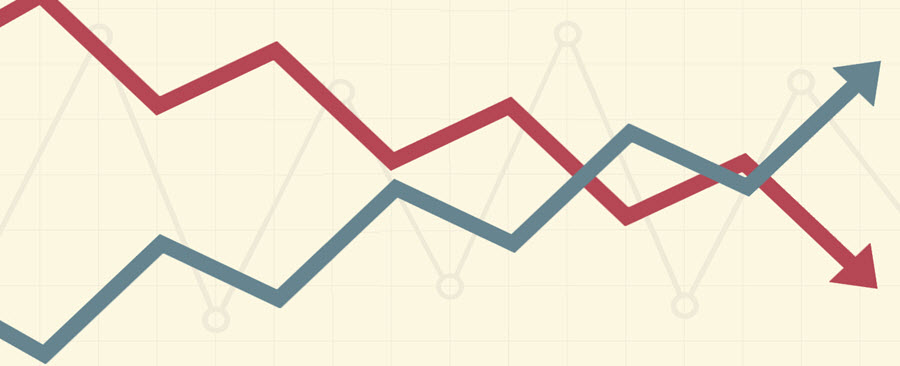Explainer: How Beta Relates to Your Investments
Written by The Content Team
Published on July 5, 2018
minute read
Share:
Q. What is beta?
A. Beta is a commonly used measure to indicate the risk of a particular investment. It measures volatility relative to the overall market — how much a stock, commodity, portfolio or other asset swings in price as compared to broader market movements. Systematic risk, as it's called, refers to unpredictable risks that affect the whole market and not simply one company, stock or industry. Beta has value as part of a larger discussion about risk, but it is only one, rather narrow, element of the risk equation.
Benefits
Beta can be a useful tool for helping choosing investments that match your personal risk profile. If you're uncomfortable with swings in price and are looking for a smoother ride, stocks with lower beta might be what you're looking for. It is a reasonably clear measure of how much a stock's price has fluctuated relative to the market over time.
Limitations
Beta is a data point based on historical information and as we know, there is no guarantee that a stock will behave the same in the future as it has in the past. In addition, the relationship between beta and returns is fraught, meaning you can't assume that a high-beta stock will provide a higher return potential.
How is beta expressed?
Beta is calculated using a complicated formula based on historical information. The resulting number (either above or below one) articulates an asset's tendency to fluctuate in price relative to the market. While there are various factors involved, here is the gist of how it works:
- Beta of one is the baseline (representing the market), indicating that a stock's price moved in unison with the overall market during the time beta was measured
- Beta below one means lower volatility, indicating a stock's price moved up and down less than the broader market over the measured time period
- Beta above one means higher volatility, indicating a stock's price moved up and down more than the broader market over the time period
For example, if a stock has a beta of two, the company's stock price is expected to be twice as volatile as the broader market. A stock with a beta of 1.2 might be expected to be 20 per cent more volatile than the broader market.
Where do you find beta?
Beta can be found in a detailed quote.
*This article was updated on July 18.
RBC Direct Investing Inc. and Royal Bank of Canada are separate corporate entities which are affiliated. RBC Direct Investing Inc. is a wholly owned subsidiary of Royal Bank of Canada and is a Member of the Investment Industry Regulatory Organization of Canada and the Canadian Investor Protection Fund. Royal Bank of Canada and certain of its issuers are related to RBC Direct Investing Inc. RBC Direct Investing Inc. does not provide investment advice or recommendations regarding the purchase or sale of any securities. Investors are responsible for their own investment decisions. RBC Direct Investing is a business name used by RBC Direct Investing Inc. ® / ™ Trademark(s) of Royal Bank of Canada. RBC and Royal Bank are registered trademarks of Royal Bank of Canada. Used under licence. © Royal Bank of Canada 2018. All rights reserved.
The views and opinions expressed in this publication are for your general interest and do not necessarily reflect the views and opinions of RBC Direct Investing. Furthermore, the products, services and securities referred to in this publication are only available in Canada and other jurisdictions where they may be legally offered for sale. If you are not currently resident of Canada, you should not access the information available on the RBC Direct Investing website.
Explore More

5 Ways to Get More Out of Your RESP
How can you make the most of this investment vehicle? We explain.
minute read

There's an ETF for That!
Find out more about the options that are out there
minute read

ETF Trends from the RBC Capital Markets Trading Floor – May 2025
Here’s what we saw on the trading floor in May 2025
minute read
Inspired Investor brings you personal stories, timely information and expert insights to empower your investment decisions. Visit About Us to find out more.







